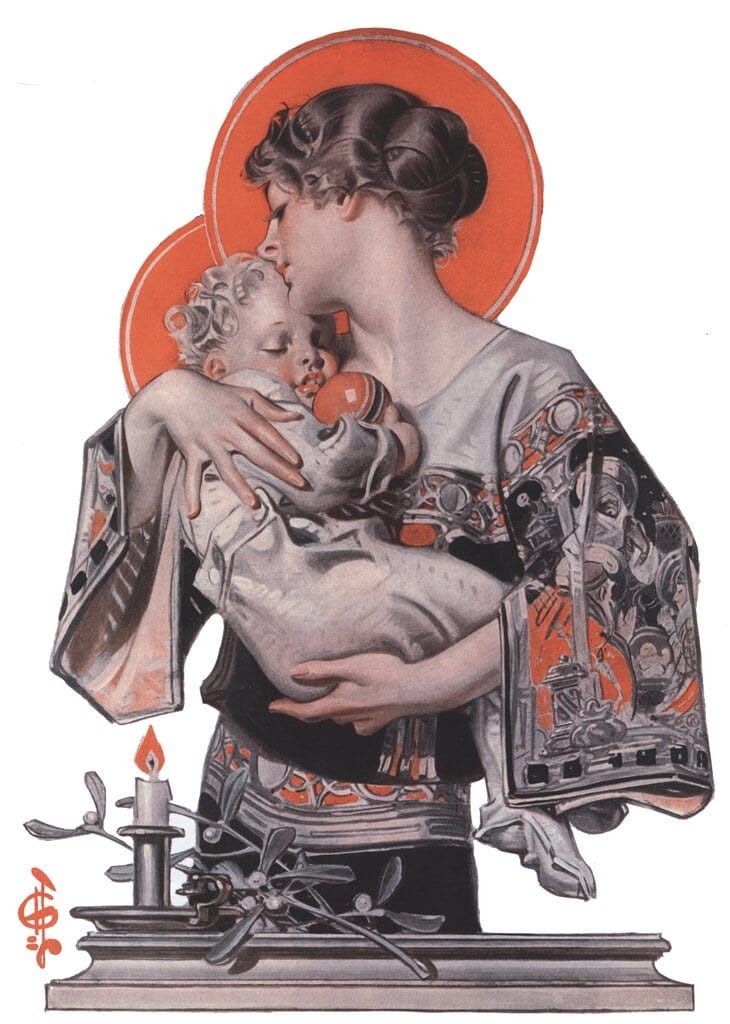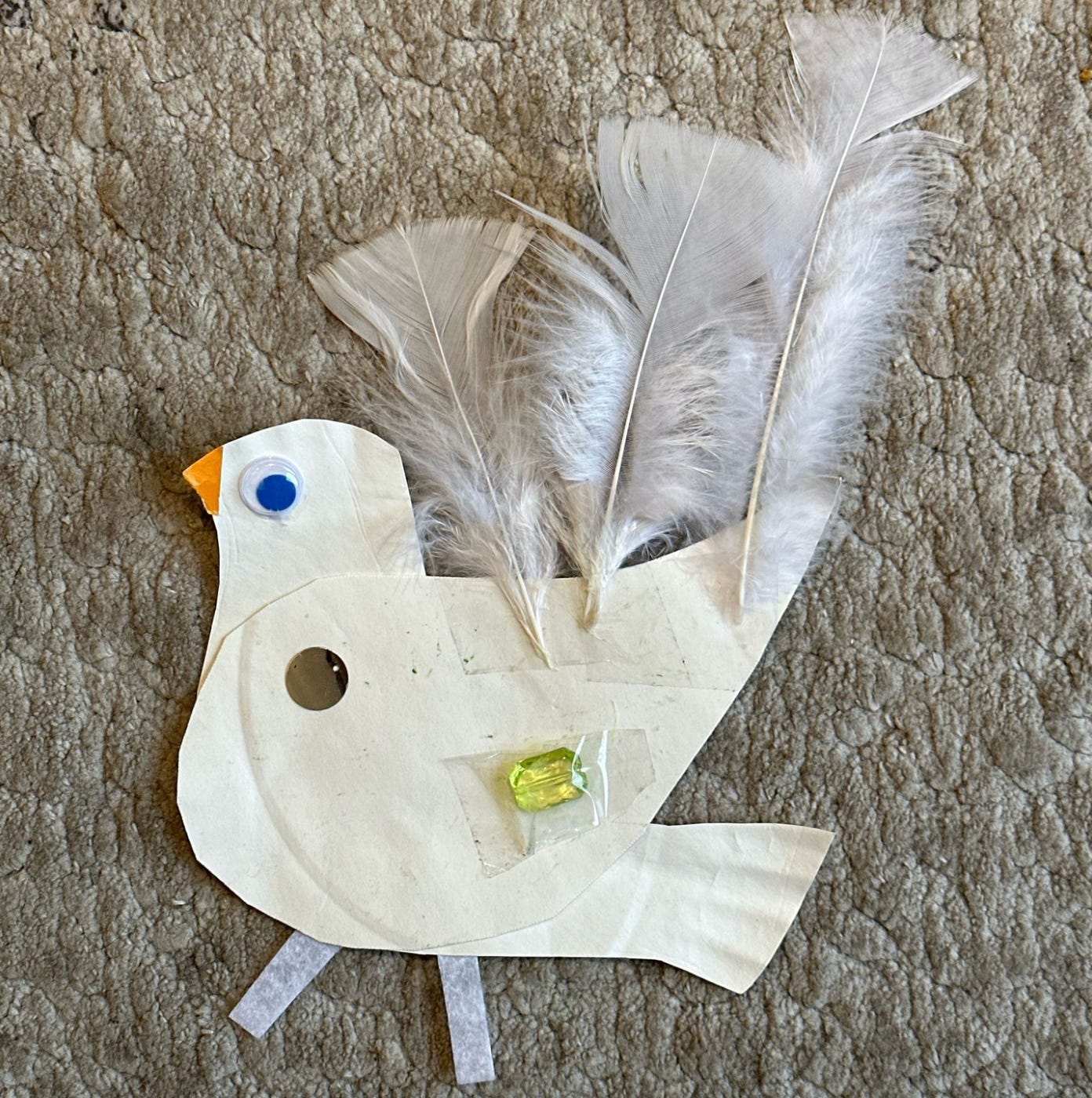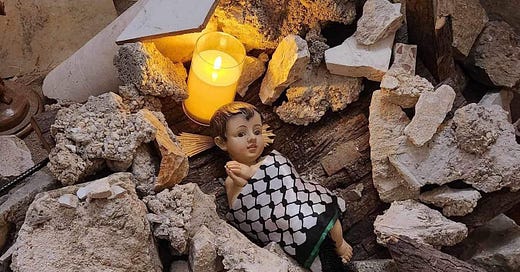Praying for Unrest
Some fragmented thoughts on bloodshed, faithful candor, troubled souls, the Killers, the myth of self-sufficiency, and handcrafted birds
Thursday, December 21
Grand Rapids, Mich.
One day in 2014, not long after policeman Darren Wilson shot and killed an unarmed teenager named Michael Brown in Ferguson, Mo., I called the Rev. Traci Blackmon, who is both a minister and a nurse. She was exhausted from the holy labor of nearly nonstop care. I’d caught her in a brief lull; she’d just finished setting up a food station for protestors and was headed to a rally outside the local prosecutor’s office. All of it, she said, was prayer: “There are those of us praying with our feet,” she said, “and those of us praying on our knees.”
Seeing a picture of Brown’s bloodied body had stirred something in Blackmon’s motherly spirit. “I have two black sons. I have one black daughter. For me, it was the image I saw of this baby laying in the street,” she said. “I know he's a grown man, but he's a baby when you're a mother. When the police put the sheet on him, hours later, the blood still seeped through the sheet. It was the blood that did it. It was the blood that was shed that made it undeniable.”
The blood that was shed.
My conversation with Blackmon came to mind the other day. I was on Instagram, flipping through yet more images and videos: one of a Palestinian mother holding her dead child; another of the Nativity scene at Christmas Evangelical Lutheran Church in Bethlehem, where Baby Jesus lies amidst rubble; one of a father cradling his toddler daughter’s body and kissing her bloodied face.
It was the blood that was shed that made it undeniable.
Since Blackmon spoke about how she was praying, I asked her how she wanted people beyond her community to pray. I’ll never forget her reply: “I want you to pray for justice. I want you to pray for reconciliation. I want you to pray for restoration. But I don't want you to pray for peace. We don't need peace right now—we need unrest.”
We don’t need peace right now—we need unrest.
I’ve remembered Blackmon’s prayer request so many times in the ensuing years, particularly when the world has been wracked by war and violence. I echo it now, not just because of Palestine and Israel but also Darfur and Congo and Ukraine and so many other places.
We don’t need peace right now—we need unrest.
It might seem odd to pray for unrest. To be clear, a prayer for unrest is not a prayer for violence. In my understanding, this kind of unrest is a stirring in the soul, a shaking of the spirit. It is compassion and shared sorrow, mourning with those who mourn and weeping with those who weep. To pray for unrest is to be discontent with the way things are right now. To pray for unrest is to lament the gut-wrenching ugliness of the world. To pray for unrest is to admit that we haven’t loved one another as we should and to acknowledge that we need help.
Holy unrest feels apt right now, both with the state of the aching world and as those of us who are Christians move through the last week of Advent. In December 1928, while serving a German church in Barcelona, Dietrich Bonhoeffer preached a sermon in which he mused at length on the modern taming of Advent as well as the necessity for a sort of spiritual unrest among those who take it seriously. “We take the thought of God coming among us so calmly…. The coming of God is not only a message of joy, but also fearful news for anyone who has a conscience,” he said. “The celebration of Advent is possibly only to those who are troubled in soul, who know themselves to be poor and imperfect, and who look forward to something greater to come.”
This season of active waiting has always been about eager anticipation of a world-changing arrival, and such unrest is not an end or static state; it is dynamic, moving and hopeful. In expressing our discontent with how things are right now, we also testify to our belief in what things could and should be. In acknowledging suffering, we shift toward offering balm to those who need it. In confessing that we’ve once again failed one another, we have an invitation to recommit to communal care.
As we grapple with deeply human fears, may we be met by holy wonder. As we tally the cost of human violence, may we seek to forge peace and bring healing. And as we repent of the ways in which we have failed to be loving, may we lift our voices in welcome to the ultimate—and ultimately healing—embodiment of love.

What I’m Listening to: I love when I can identify a thread woven throughout a writer’s work. For Brandon Flowers, the frontman for the Killers, I think it’s his search for spiritual meaning and belonging. He peppers his lyrics with words like “sanctified” and “blessed” and mentions of the Promised Land and revelation; read or listen closely enough, and you might pick up hints about his faith (he’s Mormon).
The Killers were a fixture on the soundtrack of my early adulthood. Their songs powered me through many a late-night writing session when I was a young reporter and writer. Plus, I had the hugest crush on Flowers, who was awkward and sometimes sang out of tune and never let that stop him. So I was thrilled when, a couple of weeks ago, the Killers released a new album, Rebel Diamonds, which is essentially a greatest-hits compilation.
“Mr. Brightside” is by far the Killers’ most popular song. It’s from their first album, Hot Fuss, which came out in 2004, though it took time to become a phenomenon, as The New York Times observed in its cultural study a couple of weeks ago. “Mr. Brightside” is on the new album, of course, but it’s never been my favorite. Instead, it was the third single from Hot Fuss, “All These Things That I’ve Done,” that won my heart. Written about a man who mentored U.S. Army veterans who had been wounded in Iraq, the song thrums with such longing and speaks so deeply of the desire for connection that it transcends the specificity of its inspiration. When it was released, I was just beginning to come out, and I easily mapped the lyrics onto my own life.
Another of my favorite Killers songs, “Read My Mind,” contains the line from which the title of the new album comes: “The stars are blazing like rebel diamonds/ Cut out of the sun.” Yes, it’s about love and loss, but what kind exactly? There’s just enough ambiguity to create hospitality—a Flowers trademark. When “Human” was released in 2008, fans puzzled over the words. The core question asked in the song is a strange one: “Are we human, or are we dancer?” Grammar sticklers were particularly frustrated by it.
I wasn’t bothered by the elision of plural and singular, and I’ve never minded the mystery either. My personal motto during college and for some years afterward was, “I prefer to remain an enigma.” Anyway, those who prefer their yearnings to be met with more clarity can still find songs like “Be Still.” It’s a gentle, hortatory anthem that could be easily be sung to an anxious kid—“You've got so much heart/ Is this real or just a dream?/ Oh rise up like the sun and/ Labor 'til the work is done”—but which Flowers also performed at Senator Harry Reid’s funeral.
The only new song on Rebel Diamonds, “Spirit,” is one of the band’s most overtly spiritual songs. I suspect that Flowers’s delivery won’t be for everyone—he speaks the lines more than he sings them—but the ache for purpose beyond himself is there: “Just trying to find the faith to fill the gap/ One more time.” Me too.
Returning to the music of a favorite artist is a friendly way to revisit who I was and to reflect on who I’ve become. Music stirs memory. “Head down/ Wrong fit/ Big deal/ That's just growin' up,” Flowers sings on “boy,” one of the most under-appreciated songs in the Killers discography and, according to Spotify, by far the least-listened-to track on Rebel Diamonds. “Just give it some time/ Oh, drawn arrows unseen will fly/ And break the black night/ But don't overthink it, boy.” Flowers wrote “boy” after moving back to Utah, visiting and re-visiting the small town where he’d spent much of his childhood, and beginning to make peace with who he’d been. “I found that the place I had wanted to get away from so desperately at 16 was now a place that I couldn't stop returning to. I have a son approaching the age I was at that time in my life,” he said. “With ‘boy,’ I want to reach out and tell myself—and my sons—to not overthink it.” Me too.
What was on the soundtracks of seasons past that still has meaning for you?
What I’m Reading: Rowan Williams, the former Archbishop of Canterbury, is one of my favorite theologians. He recently penned an Advent reflection for Plough in which he reflects on the challenge that the Incarnation presents to the human notion of independence. “The basic form of the sin from which we need to be delivered is the myth of self-sufficiency,” he argues—and in the Baby Jesus, we are reminded of our neediness, which, in taking on full humanity, God took on as well. “The particular perspective offered by the story of Christ’s birth is the one that so many traditional seasonal hymns underline: the unlimited eternal activity that is God unveils itself in the form of the most dependent kind of humanity we can think of.” One of the implications of that? “It entails seeing the persons and things around us as bearers of life – whether they look like friends or enemies at first sight.” The entire piece is worth reading and pondering.

What I’m Thinking About: Thousands of children have been killed in Gaza over the past couple of months. Last week, I came across a community art project called Birds of Gaza, which invites children to create handcrafted birds in memory of those who have died. The birds drawn, crafted, and painted by kids around the world are gorgeous. They obviously can’t mitigate the horrors or undo these unnecessary killings. But this is a way for people to mourn with those who mourn, to express solidarity with the suffering, and to spark a glimmer of beauty amidst such ugliness.

We live in a world of the both/and: both joy and sorrow, both pleasure and pain. If you and yours celebrate Christmas, I hope that your day will be rich with goodness. Whether you’re marking this Christmas with a meal for one or at a crowded table in a noisy room, may you eat something that satisfies and even delights—and may you feel the loving tenderness of the God who came to be with us and among us.
As always, I’m so glad we can stumble through all this together, and I’ll try to write again soon.
With all my warmest wishes,
Jeff





So beautiful. The painting of the modern madonna and child spoke to me. I will carry that with me through this Christmas season. the birds of Gaza also will. I find I am too easily beat down by the news so I avoid it. Thank you for making a way for me to pray for/be in solidarity with those living through the horror of war.
Thanks for introducing me to The Killers.